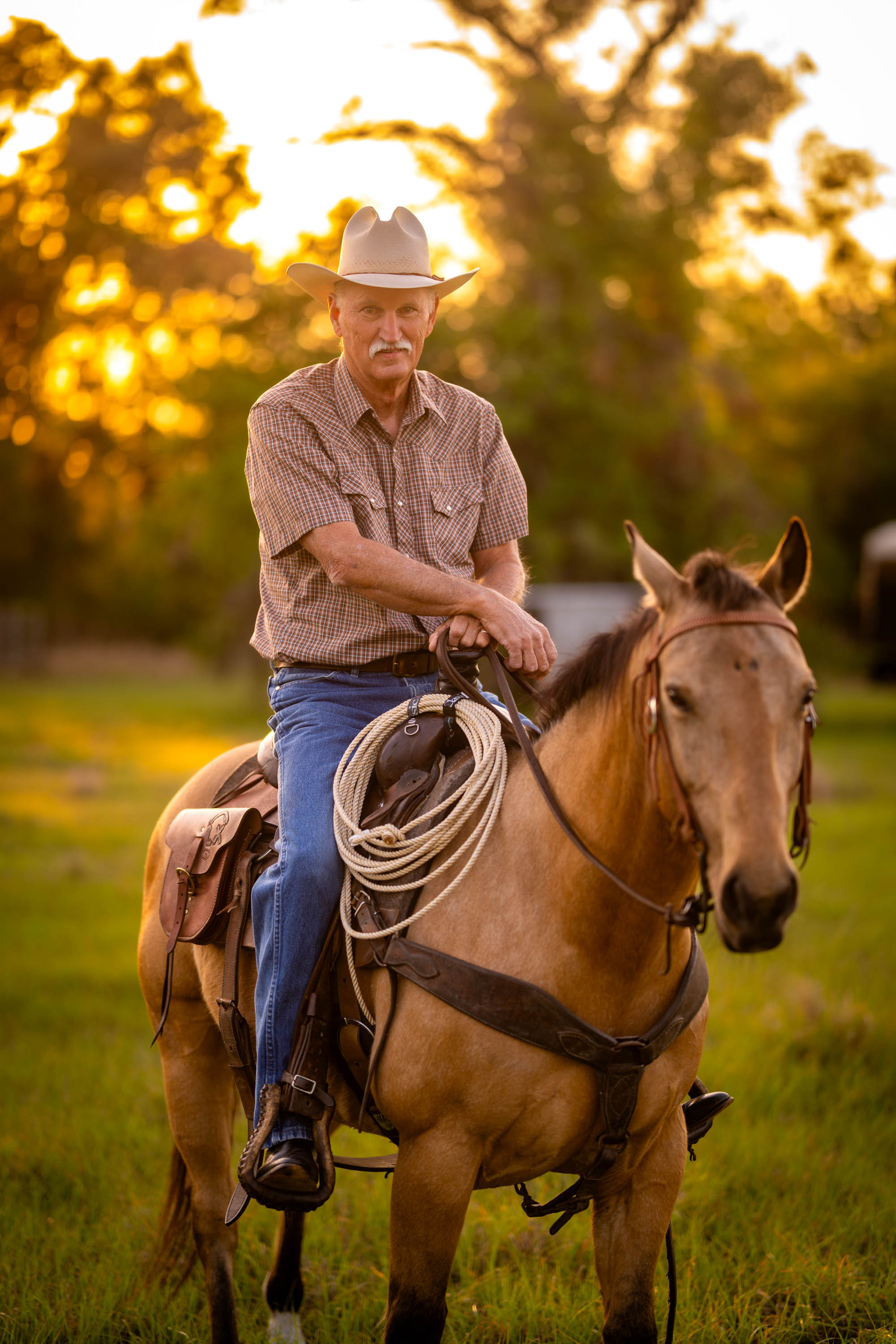As Hurricane Ian approached southwest Florida in September 2022, Chuck Johnston wasn’t consumed by fear, but he was concerned about the catastrophic destruction it could bring to his community. With a lifetime of experience as a first responder, he was no stranger to disaster response—and understood the gravity of the situation all too well. “We have a higher sense of reality,” he says of disaster responders. “And the reality is, the storm is going to kick your butt. I know the potential of what we need to be prepared for. It was scary as the storm was going through, but the next morning, you went out to help people,” he says. “And when that was done, only then did you go home to clean up your own yard.”
Johnston was born and raised in Sarasota. After interning at the city fire department during his last year of high school, he entered their cadet program immediately upon graduating. “I actually got paid as a cadet—not a lot—but I did get paid for my work and it was the start of a heck of a career,” he says.
Now retired from firefighting, Johnston worked 26 years with the city of Sarasota and then started a second career with the Florida Forest Service, leading efforts fighting wildfires. When a prescribed burn (a small fire set to avoid a larger one, a necessary part of the growing wildfire control program in Florida) turned into a devastating fire and burned down the Carlton Reserve in Venice, Johnston was called in. He developed a wildland program for Sarasota County and stayed with that program for six years. Just before leaving that, he was named Interim Emergency Management Chief because he had worked in hurricanes and other types of disasters with emergency management. “I was out doing my thing out in the woods handling the wildfires when they called and they told me that the 23-year veteran emergency manager was retiring,” he recalls. “We’d had Hurricane Charley that summer before and this was May. It was basically the beginning of the next hurricane season and I agreed to help, but only as an interim position because I was looking to start ranching full-time with my wife.”
After officially retiring once again, Johnston joined the Soil and Water Conservation Board as an elected supervisor. One of the board’s main goals was to collaborate with agencies to benefit the agricultural community. He worked closely with the state Agricultural Response Team, part of the Department of Agriculture, drawing on his experience with Florida’s forestry division. Together, they discussed how to support agriculture after storms, specifically focusing on Hurricane Charley, which severely disrupted communications.
With his background in emergency management, Johnston, alongside new director Ed McCraine, decided to create the Sarasota Ag Recovery Group. The goal was to help agriculture recover, support farmers, and aid in the recovery of animals affected by storms. The group was designed to operate in three phases: preparation, response and recovery. While the group’s divisions are geographically based, its functions can support any area in need. The Sarasota Ag Recovery Group, a coalition of the Farm Bureau, Cattlemen’s Association, University of Florida’s Cooperative Extension
and the Sarasota Sheriff’s Department, lacked a communication system. Volunteer groups stepped in, including a ham radio team that offered training and provided communication systems capable of reaching across multiple counties.
Johnston and his assistant coordinators, including a retired police lieutenant with hurricane experience and a ham radio expert with Air Force background, built the group as a clearinghouse for local talent. The goal was to coordinate and leverage the community’s resources to assist in recovery efforts, something that hadn’t been done before. For the three most recent hurricanes—Debby, Helene and Milton—the team worked very closely with all the other emergency management agencies, using a new advanced system allowing response teams to talk on handheld radios across long distances, enabling the team to help neighbors not just locally but across many other counties.
In addition to his current role as a rancher and owner of 2J Farms, Johnston has been an active volunteer for Resilient Retreat over the last five years, helping with fundraising events, property clean up and property maintenance, all in support of their mission to provide free, confidential, evidence-based programs and support to trauma survivors including first responders. “We still call it the tree farm because that’s what it was whenever we moved out here back in the 70s. It was a tree farm,” he says of Resilient Retreat. “When they came in, we got tied in with them pretty quickly. We only live a couple of dirt roads away so we actually have some cattle on the property. The people that come out there and hike back in the trails,” he says. “It’s close to my heart because of the amount of years that I spent in emergency services. Folks who leave those roles may seem whole but they’ve got their demons. Everyone who works at Resilient Retreat is there for the right reasons. They have the core of what it takes to be a volunteer who says, “It’s not about me.”
Chuck Johnston was honored as a Good Hero by SRQ Magazine in December 2023.









